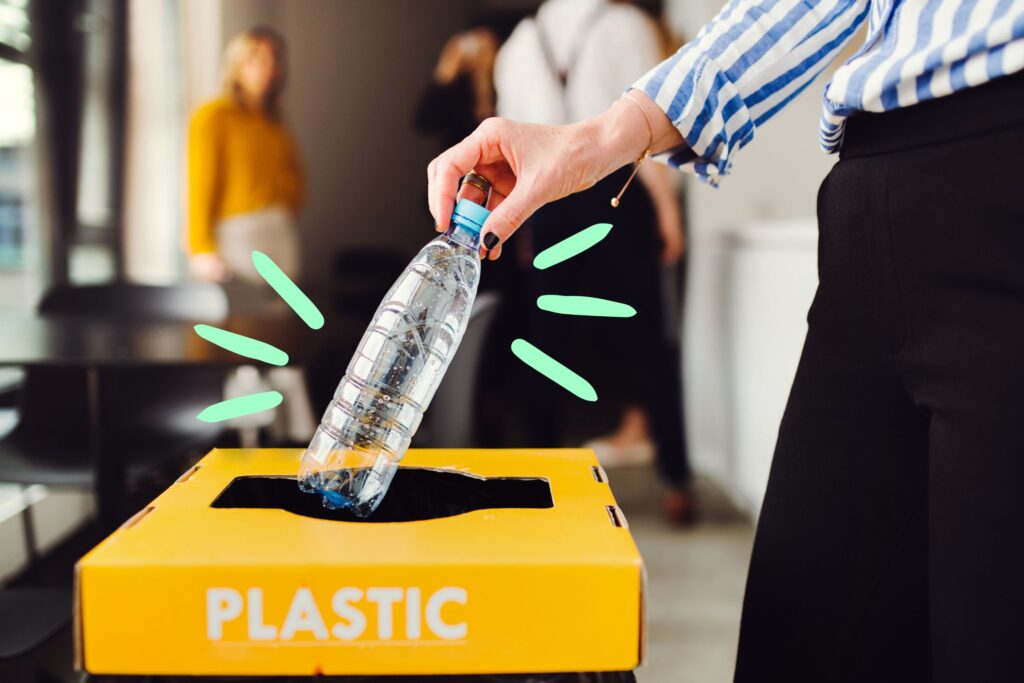The modern world of doing business is a very different beast. With consumers and companies alike increasingly aware of the world’s environmental problems and the need to take action to protect the it, choices made on both sides are now more keenly informed by green considerations than ever before.
And not a moment too soon. Reassuringly, it seems as though reputable businesses are taking measures to protect the environment by being sustainable in the way they produce and distribute their products, and the manner they go about their business.
As well as it, quite simply, being the right thing to do, being eco-friendly can also help your business’ bottom line. Research shows that more than a third of global consumers are willing to pay more for sustainability, meaning it’s not only a morally right move, but a potentially lucrative one, too. With that in mind, here are 7 steps to a greener more sustainable business.
Measure Your Company’s Carbon Output & Improve Energy Efficiency
Knowledge is power, so first things first; it’s vital to understand your company’s carbon output before you go about reducing it. Check out the Carbon Trust’s SME Carbon Footprint Calculator for more on that.
Regardless of your footprint, every business needs to use energy in some way, whether that’s in the form of lighting, heating, computers, machinery, or vehicles. Although these processes are essential to being able to run your business, you can reduce their environmental impact by making your energy use more efficient.
Greater energy efficiency ultimately equates to using less energy and therefore reducing greenhouse gas emissions and other environmental impacts. As an extra bonus, this will also reduce your energy bills, saving you on expenses.
But how to go about becoming a more energy efficient business? Well, for a start, installing energy efficient lighting can significantly reduce your company’s energy usage, particularly if you have a larger site. Better insulation also helps to reduce the amount of energy needed to heat and cool your premises.
Water usage is also important, so take care to install water efficient equipment in your bathrooms and other plumbing systems. If you have landscaping, replacing the plants with those that need less water can reduce your water usage and protect precious resources.
And finally, commit to good energy-saving practice with electricity. Make sure lights, computers and other devices, and plug switches are all turned off at the end of the day. Every little helps, as they say!
The good news is that there are government incentives to make your business more energy efficient, with support schemes in place to encourage your company to go green(er).
Eliminate Paper
It used to be that offices and other businesses needed to use large volumes of paper for correspondence, reports, research, and other essential processes. This excessive demand for paper and its production is a primary cause of deforestation, as well as chemical pollution associated with making office-grade paper. With the ease of modern communication channels, you can – and should – eliminate your business’ use of paper entirely.

Correspondence can be completely replaced with emails, including invoicing. Storage, bookkeeping and even POS systems can now take place in the Cloud, allowing your business to safely and securely store documents, replacing the need for paper-based storage, including backup storage.
Virtually every process, from meeting minutes to internal communications, can be effectively carried out electronically, eliminating the need for any paper at all. Now, where did I jot down my pin number?
Cultivate A Culture Of Recycling
If you do have to use paper (as well as other potentially ‘single-use’ materials), then implementing effective recycling systems in your business is essential to ensure your business keeps its environmental impact to a minimum.
Single-use plastics, in particular, are a major environmental issue, contributing to overflowing landfill and polluting our rivers and oceans. Effective recycling of plastic waste helps to reduce this problem – make sure you’re using an eco-friendly waste recycling service to ensure your company is operating in as cyclical a way as possible.
Recycling is not only related to how you use your waste, but also making sure that you only source products and supplies that are recycled. If you have to use paper, make sure it is certified recycled. For one tonne of recycled paper, this will save 7,000 gallons of water and 3 cubic yards of landfill.
Make sure your office products, toilet paper, packaging and all other supplies are made from recycled or recyclable materials. Once you’ve eliminated all single use items from your supply chain, you’ll realise how superfluous they were in the first place.

Implement Comprehensive Waste Management Practices
Effective waste management is crucial for any business aiming to reduce its environmental impact. Start by conducting a waste audit to understand the types and quantities of waste your business generates. This will help you identify areas where you can reduce, reuse, and recycle more effectively.
Focus on the finer details when undertaking a comprehensive review of your waste management practices. Ensure that you have proper sanitary waste collection systems in place to handle waste from restrooms – sanitary waste collection company like Mustang Washrooms – alongside recycling bins for paper, plastic, and other materials.
Additionally, set up designated bins for electronic waste to ensure old devices are disposed of responsibly. Consider composting organic waste from your kitchen or break room, and establish a system for collecting and recycling batteries and light bulbs. By implementing a comprehensive waste management strategy, you can significantly reduce the amount of waste your business sends to landfill, contributing to a healthier planet.
Green-Up Your Supply Chain
Whether it’s recycled, recyclable, compostable or biodegradable, prioritising suppliers who use eco-friendly packaging is a great way for your company to minimise waste and give your customers a more sustainable experience.
Generally speaking, cardboard and paper-based packaging should be more widely used than non-renewable packaging materials made from plastic — it’s far better for the planet.
Of course, if your company is packaging their own products, then it’s essential you use sustainable materials, not only to reduce your carbon footprint and ensure you’re operating more sustainably, but also to ensure loyalty in customers who prioritise such values. Check out these benefits of sustainable packaging to your business for more on that.
Introduce A Cycle To Work Scheme & Carpooling
Traditionally, a large amount of a business’ greenhouse gas contribution comes from their worker’s commutes and any business travel required for various roles within the company. Reducing your business’ carbon footprint means cutting down on this transport as much as possible, and as a responsible employer, there are things you can do to encourage this.
Incentivise your staff to carpool or come to work using sustainable transport methods such as public transport, walking, or cycling. Better still, you may be able to reduce your staff’s need to commute at all by opening up the possibility for remote work part or all of the time. Technology can also be used to replace in-person meetings with virtual meetings, reducing the need to travel, too…

Encourage Employees To Work From Home Where Possible
Alan Sugar be damned; there are plenty of benefits of employees working from home or your workplace adopting a hybrid-working model, and one of the chief pros is your company’s impact on the environment.
As Science Focus reports “Working from home can reduce both travel emissions from people’s commutes and save the need to heat, cool, or light offices”.
Forbes also reports that one “study found that working from home four days a week would reduce the amount of nitrogen dioxide, which is the main pollutant generated by traffic emissions, by around 10%”.
And with that ethos still ringing in your ears, we’ve just found the perfect excuse to log off and head home!





